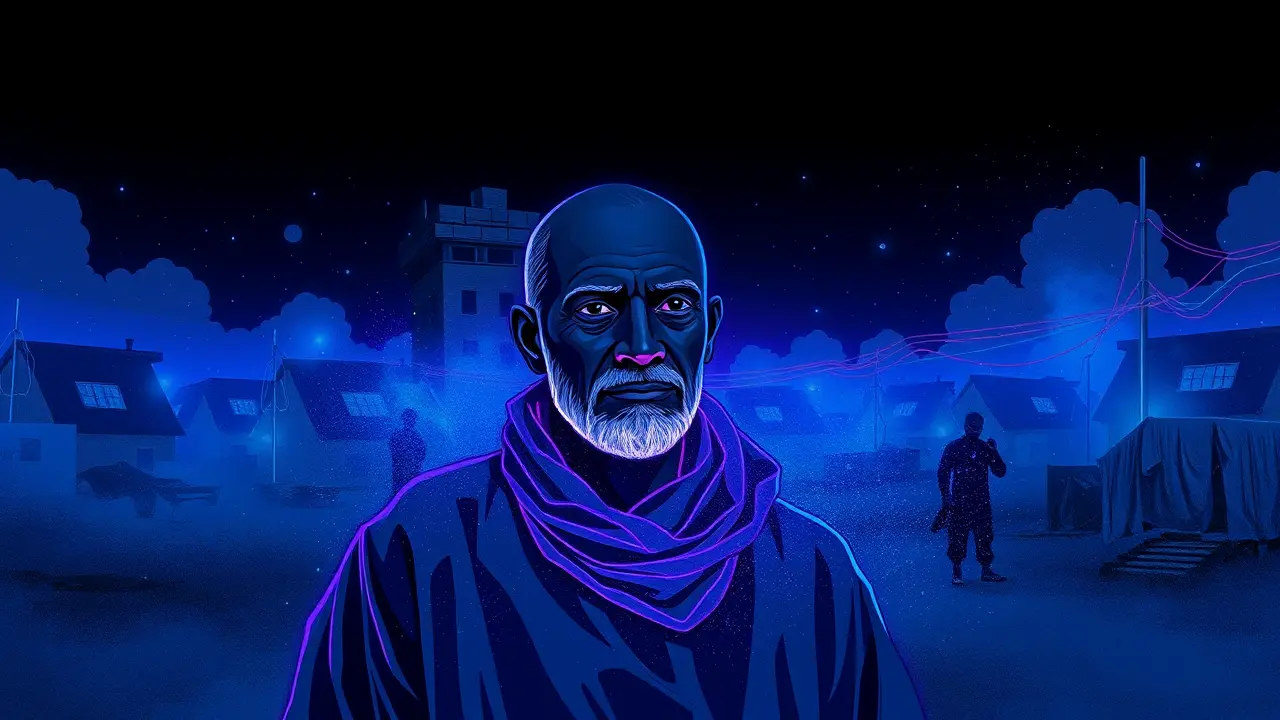
Politicsconflict & defenseMilitary Operations
Sudan hospital worker flees alleged massacre in el-Fasher.
EM
Emma Wilson
6 hours ago7 min read
The dust of el-Fasher still clings to Abdu-Rabbu Ahmed’s clothes, a fine, gritty residue of a home that has been violently unmade. He speaks not with the booming voice of a politician or a general, but with the shattered quiet of a man who has witnessed the unthinkable.'I have lost the people whose faces I used to see smiling,' he says, the words hanging in the air, heavy with a grief that is both personal and collective. His escape from the alleged massacre in the North Darfur capital is not merely a tale of geographic relocation; it is a severance from a world of familiar greetings, shared meals, and the daily rhythm of community that has been systematically dismantled.El-Fasher, the last major city in the vast, arid region of Darfur not under the control of the Rapid Support Forces (RSF), has become the epicenter of a terrifyingly familiar conflict, a grim echo of the genocide that scarred the region two decades ago. The current siege, a brutal power struggle between the RSF and the Sudanese Armed Forces, has trapped hundreds of thousands of civilians in a cauldron of starvation, relentless shelling, and now, according to harrowing accounts from survivors and aid groups, targeted ethnic violence.Ahmed’s testimony, one of many now filtering out through strained communication channels, describes a descent into chaos where hospitals, once sanctuaries marked by the Red Crescent, became targets, and where the simple act of seeking water could be a death sentence. The broader context here is a nation in freefall; since the collapse of the fragile power-sharing government and the eruption of war between the army and the RSF in April 2023, Sudan has been plunged into the world’s largest internal displacement crisis.The conflict in Darfur, however, carries the chilling specter of history repeating itself. The RSF, born from the Janjaweed militias accused of widespread atrocities in the 2000s, is now accused of employing the same brutal tactics of collective punishment against non-Arab Masalit communities.What we are witnessing is not a simple battle for territory, but a deliberate campaign of terror, a calculated effort to break the spirit of a city that has long stood as a symbol of resistance. The consequences of this alleged massacre, if verified, will ripple far beyond Sudan’s borders, threatening to destabilize an already volatile Chad and the Central African Republic, where refugees pour across the border with stories that sound hauntingly similar to those from 2003.The international community’s response has been, as one UN official privately lamented, 'a symphony of condemnation without consequence. ' Diplomatic efforts are stalled, humanitarian access is systematically blocked, and the world’s attention flickers elsewhere.For Abdu-Rabbu Ahmed and the countless others who have fled, the road ahead is one of unimaginable hardship. The smiles he remembers are now ghosts in the dust of el-Fasher, a stark reminder that some losses are not just of life, but of an entire world, extinguished in a storm of violence that the world has, once again, chosen mostly to watch from a distance.
#Sudan
#el-Fasher
#massacre
#human rights
#conflict
#humanitarian crisis
#featured
Stay Informed. Act Smarter.
Get weekly highlights, major headlines, and expert insights — then put your knowledge to work in our live prediction markets.
© 2025 Outpoll Service LTD. All rights reserved.